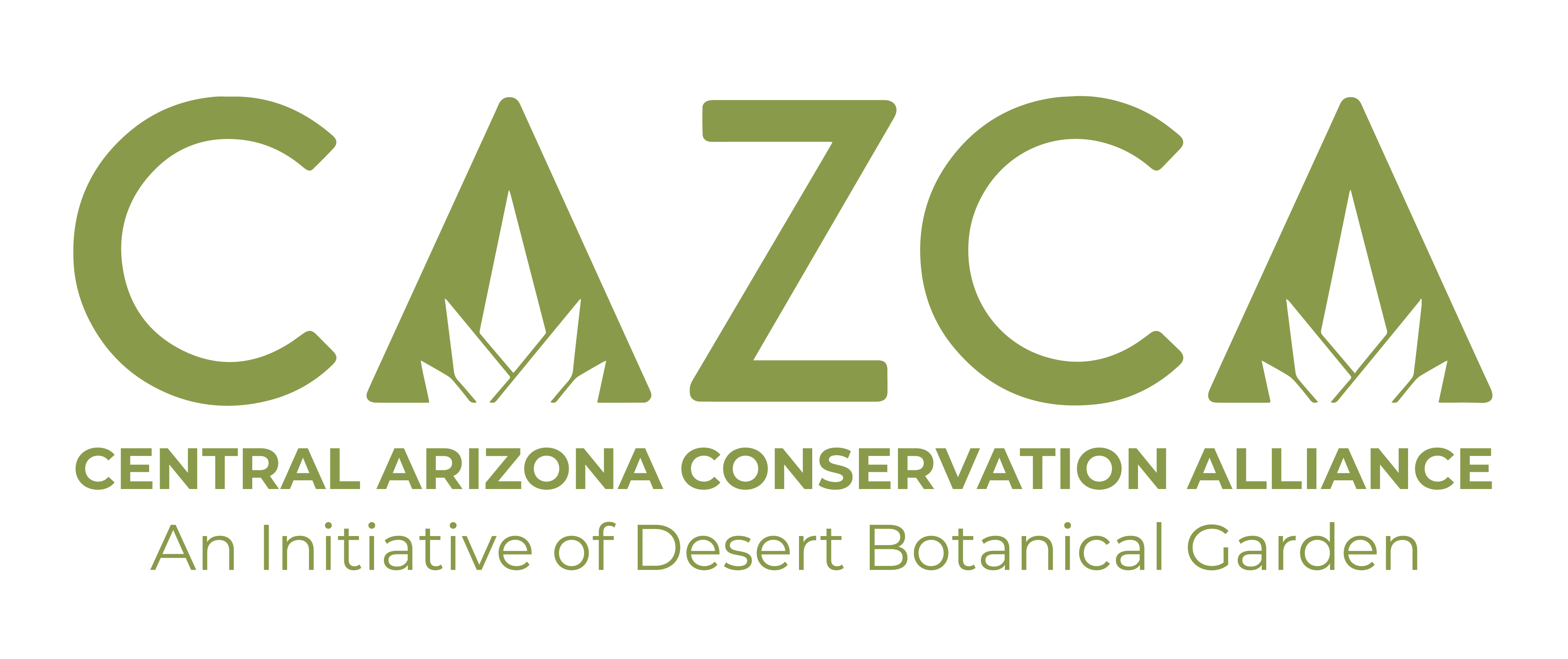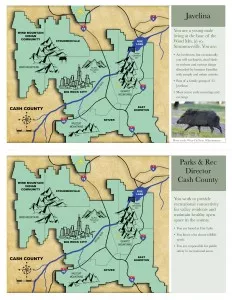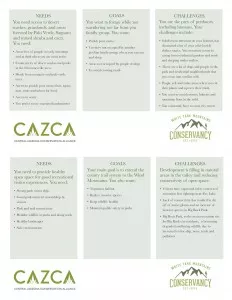Resources
RESOURCE LIBRARY
In an effort to share knowledge, best practices and emerging research we hosted events like the CAZCA Learning Labs and our Speaker Series. Each are opportunities to share valuable resources for CAZCA partners. Take a look at some of the resources below.
Non-native Plant Resources
Explore resources and information on non-native species below. We are working to create a more robust library of resources for the community. You can also explore the CAZCA Collaboration Hub.
| Stinknet Informational Brochure | ||
Speaker Series: Stinknet the Looming Invasive
Summary and Resources
John Scheuring, Conservation Chair for the Arizona Native Plant Society – Tucson, talks about Stinknet (Oncosiphon piluliferum) discusses the characteristics, effects and management treatments of this non-native plant.
John Scheuring’s Presentation – View it here!
Download the Stinknet brochure and share it with your community!
Connectivity Lab: Urban Corridors and Crossings Activity
Summary and Resources
The lab was a workshop comprised of a brief (10 minute) presentation, followed by a scenario game in which participants assumed the roles of stakeholders in fictitious Cash County, AZ.
The purpose of using a fictitious place was to allow participants to engage in the scenario without the constraints of the personal or professional goals, challenges, or mandates that the populate real stakeholder landscape of Maricopa County.
Cash County Map and Description
Restoration Lab: Implementing the USGS RAMPS Network
Summary and Resources
Molly McCormick of the USGS RAMPS from the Southwest Biological Science Center in Flagstaff leads the discussion was about implementing RestoreNet gardens in the Phoenix-metro area. RestoreNet is a networked experiment systematically testing restoration techniques across the desert Southwest.
Participation in the network would increase understanding of how various techniques (such as seed mixes, mulch, above-ground and below-ground structures) support restoration objectives. This project will help support land managers and stewards doing restoration work in the Sonoran desert and across the Southwest!
“Invitation to the RAMPS RestoreNet” presentation by Molly McCormick
Distributed Field Trial Network for Dryland Restoration
For more information contact Helen Rowe.
Restoration Lab: Lake Pleasant Field Trip
Summary of Lab
Lake Pleasant Regional Park is managed by Maricopa County Parks and Recreation Department, but land is owned by Bureau of Reclamation. Maricopa County has a management agreement to oversee the park.
With the Park Master Plan approved in 1995, much of the then deemed Conservation area north of Lake Pleasant has swung in the pendulum to overuse. The issues that have arisen include: illegal roads or routes being made, destruction of vegetation/wildlife habitats, cutting of trees, camping where there is no designated area, illegal dumping, and overuse of recreation thus expanding the destruction of the area.
Maricopa County is seeking creative ways to make the activity benign so that environment can come back and look as full and lush as it was before by applying barriers, signs, and revegetating the landscape back to its original views. After returning from the field visits, ASU Master’s student and City of Phoenix South Mountain Park Ranger, Taylor Riske, gave a presentation on trail management practices.
“Recreation Management Approaches” pdf presentation by Taylor Riske
Part 1, Part 2, Part 3, Part 4,
Taylor Riske’s Master’s Thesis – “The Effectiveness of Trail Mitigation and Theory-Grounded Signage in an Economical Approach to Reducing Social Trail Behaviors“
CAZCA Email Newsletters
CAZCA releases the official Alliance Insider email newsletters every other month. Special announcement or event email newsletters are released periodically.
Visit our Newsletter Archive
Get Involved
Whether you love to hike or just want to smell the desert roses, CAZCA has a way for you to get involved in the preservation of the Sonoran Desert.




